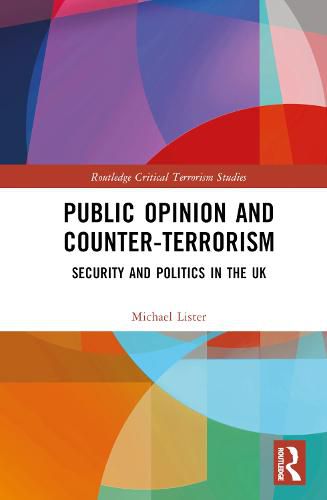Readings Newsletter
Become a Readings Member to make your shopping experience even easier.
Sign in or sign up for free!
You’re not far away from qualifying for FREE standard shipping within Australia
You’ve qualified for FREE standard shipping within Australia
The cart is loading…






This book examines the ways in which the views of the public inhabit the counter-terrorism policy space, with a focus on the UK case.
Drawing insights from Critical Terrorism Studies, Critical Security Studies and studies of public opinion, the book develops an argument that the relationship between public opinion is complex, iterative and mutually instantiating. Rather than public opinion and counter-terrorism policy existing in a simple, uni-directional causal relationship, the book argues that whilst counter-terrorism policy actors are informed by public opinion, in important ways they also construct that very opinion. This argument is made through an empirical analysis of UK counter-terrorism policy. Drawing on primary research interviews with key counter-terrorism policy actors, and security professionals, as well as original analysis of parliamentary debates, the book demonstrates that rather than UK counter- terrorism politics being closed and elite-driven, there exists a complex, dialectical relationship between public opinion and both the making and the implementing of counter-terrorism policy.
This book will be of much interest to students of critical terrorism studies, counter-terrorism, security studies, British politics and communication studies.
$9.00 standard shipping within Australia
FREE standard shipping within Australia for orders over $100.00
Express & International shipping calculated at checkout
This book examines the ways in which the views of the public inhabit the counter-terrorism policy space, with a focus on the UK case.
Drawing insights from Critical Terrorism Studies, Critical Security Studies and studies of public opinion, the book develops an argument that the relationship between public opinion is complex, iterative and mutually instantiating. Rather than public opinion and counter-terrorism policy existing in a simple, uni-directional causal relationship, the book argues that whilst counter-terrorism policy actors are informed by public opinion, in important ways they also construct that very opinion. This argument is made through an empirical analysis of UK counter-terrorism policy. Drawing on primary research interviews with key counter-terrorism policy actors, and security professionals, as well as original analysis of parliamentary debates, the book demonstrates that rather than UK counter- terrorism politics being closed and elite-driven, there exists a complex, dialectical relationship between public opinion and both the making and the implementing of counter-terrorism policy.
This book will be of much interest to students of critical terrorism studies, counter-terrorism, security studies, British politics and communication studies.